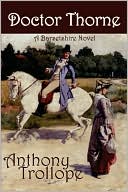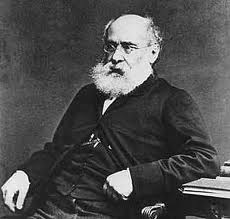“Love can only be paid in its own coin: it knows of no other legal tender.”
The pre ceding volume of this edition of Dr. Thorne, the third novel in the Chronicles of Barsetshire, establishes the characters and conflict and takes the reader up to the turning point of the novel, the death of Sir Roger Scratcherd. This volume resolves the novel’s action and conflicts in the traditions of the Victorian melodrama.
ceding volume of this edition of Dr. Thorne, the third novel in the Chronicles of Barsetshire, establishes the characters and conflict and takes the reader up to the turning point of the novel, the death of Sir Roger Scratcherd. This volume resolves the novel’s action and conflicts in the traditions of the Victorian melodrama.
Mary Thorne, the main character, is a girl of uncertain parentage who is often in the company of the Gresham sisters, with whom she has been schooled. Mary is attracted to their brother Frank. The Greshams, of high social level, own a dilapidated estate with rapidly increasing debts, and their only hope is that Frank, who will inherit the estate, will marry a wealthy woman who will solve their financial problems. Frank, however, is in love with Mary, who is increasingly ostracized because of her lack of high birth. The death of Sir Roger provides a turning point in the conflicts.

Though the earlier Barsetshire novels are highly satiric, casting wry glances at the church and the behavior of its clergy, this novel is more rooted in day to day activities, accurately depicting the class divisions in England at the time and emphasizing their absurdities. These divisions are so ingrained in society that there is little hope for any change and even less for any recognition that they might be morally wrong. Mary Thorne is the perfect little lady, despite her lack of family “background,” and she shows those more “elevated” than she that she is more a lady than they are. The novel follows standard plot lines, and there is never any doubt that the romantic complications will be resolved, that the good and honest characters of low birth will be rewarded, and that the snobs and their heirs will be brought low.
Trollope’s dialogue and his pointed observations are as trenchant as always, but this novel lacks the punch of his earlier satires. The novel is charming and the characters are pleasant, but the plot and conclusion are predictable. The novel does, however, add to the complexity of life in Barchester, providing some new characters for the series and suggesting new complications for future novels in the Chronicles of Barsetshire.
Also reviewed here: Six other novels by Anthony Trollope. Click on the Authors tab at the top of the Home page, if you are interested.
